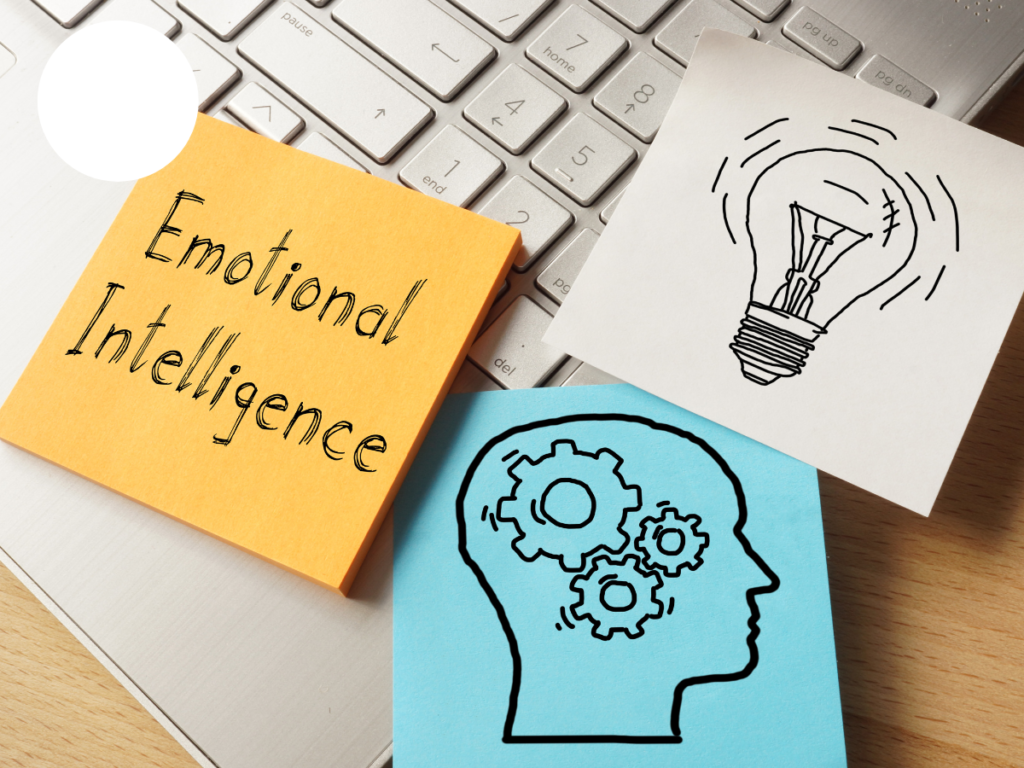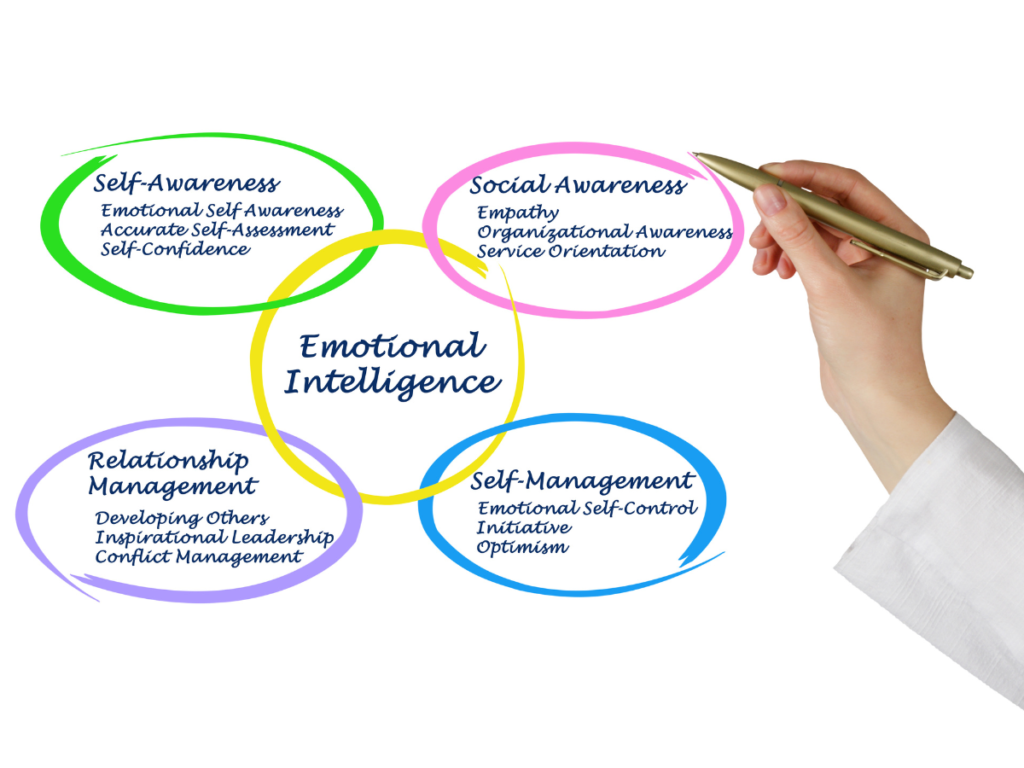Why Is Emotional Intelligence Important?

Emotional intelligence, or the ability to recognize and manage emotions in oneself and others, plays a crucial role in personal and professional success. Research has shown that individuals with high emotional intelligence are more likely to have better relationships, make informed decisions, and excel in leadership positions. However, many people are unsure of how to measure or develop their emotional intelligence. In this blog, we will explore both topics, providing practical information on how to assess and improve your emotional intelligence for greater success in all areas of life.
Defining emotional intelligence
In order to better understand the importance of emotional intelligence, it is crucial to have a clear definition of what it entails. Emotional intelligence is the ability to recognize, understand, and manage our emotions, as well as the emotions of others. It involves being aware of our feelings and reactions and having the capacity to regulate them in different situations.
There are five key components of emotional intelligence:
- Self-awareness– refers to having a deep understanding of our own emotions, strengths, and weaknesses.
- Self-regulation- involves the ability to control and manage our emotions and impulses, ensuring that we respond appropriately to different situations.
- Motivation – is the drive to achieve goals and persist in the face of obstacles.
- Empathy, and Social skills- allow us to understand and share the feelings of others, while social skills are necessary to navigate relationships and communicate effectively.
By honing these skills, we can become more emotionally intelligent individuals, setting ourselves up for success in both our personal and professional lives.

The impact of emotional intelligence on personal success
Emotional intelligence plays a crucial role in personal success as it helps individuals navigate various aspects of their lives more effectively. By honing self-awareness, individuals gain a deeper understanding of their emotions, strengths, and weaknesses. This awareness allows them to make better decisions and choose paths that align with their values and goals. Moreover, self-regulation allows individuals to control their emotions and impulses, preventing hasty decisions and detrimental actions. This skill helps in maintaining composure in stressful situations, fostering healthy relationships, and promoting self-discipline.
Furthermore, emotional intelligence enables individuals to develop strong empathy, allowing them to understand and connect with others on a deeper level. Empathy enhances communication skills, strengthens relationships, and promotes cooperation and collaboration.Overall, emotional intelligence equips individuals with the tools necessary to manage themselves and their relationships effectively, leading to personal growth, fulfillment, and success. In the next section, we will explore how emotional intelligence impacts professional success.
The impact of emotional intelligence on professional success
Just as emotional intelligence has a profound effect on personal success, it also plays a crucial role in professional success. In today’s highly competitive world, employers value individuals who not only possess technical skills but also exhibit strong emotional intelligence. One key aspect of emotional intelligence that contributes to professional success is social awareness. Being socially aware allows individuals to understand the dynamics of their workplace and the needs and emotions of their colleagues. This understanding fosters better teamwork, collaboration, and the ability to adapt to different working styles.
Additionally, individuals with high emotional intelligence excel in leadership roles. They are empathetic, able to understand and connect with their team members and recognize their strengths and limitations. This enables them to effectively delegate tasks, provide support, and motivate their team, leading to increased productivity and a positive work environment. Furthermore, emotional intelligence enhances communication skills, enabling individuals to express their thoughts and ideas clearly and assertively. It also helps in active listening, understanding non-verbal cues, and resolving conflicts diplomatically.
Overall, cultivating emotional intelligence is crucial for professional success, as it allows individuals to effectively navigate workplace challenges, build strong relationships, make informed decisions, and adapt to changing circumstances. In the next section, we will explore strategies for developing emotional intelligence and reaping its benefits in both personal and professional life.
Developing emotional intelligence
Developing emotional intelligence is a continuous process that requires self-awareness, practice, and willingness to grow. Here are some strategies that can help individuals cultivate their emotional intelligence in both personal and professional settings:
- Self-reflection: Take the time to reflect on your emotions, reactions, and behavior. Understand your triggers, strengths, and areas for growth. Explore the root causes of your emotions and how they impact your actions.
- Empathy and perspective-taking: Put yourself in others’ shoes and try to understand their emotions, motivations, and perspectives. Active listening and seeking to understand before being understood can help develop empathy.
- Emotional regulation: Learn to manage and regulate your own emotions effectively. Recognize and express emotions in a healthy way, and practice stress management techniques such as deep breathing or mindfulness.
- Conflict resolution: Develop the ability to resolve conflicts in a constructive and respectful manner. Seek win-win solutions and focus on finding common ground rather than getting caught up in ego battles.
- Continuous learning: Seek feedback from trusted mentors, peers, or supervisors about your emotional intelligence skills. Take courses, attend workshops, or read books that focus on emotional intelligence to expand your knowledge and skills.
By implementing these strategies, individuals can strengthen their emotional intelligence, enhance interpersonal relationships, and ultimately achieve personal and professional success. In the final section, we will explore real-life examples of individuals who have leveraged emotional intelligence to achieve remarkable accomplishments.
Applying emotional intelligence in the workplace
Once individuals have developed their emotional intelligence, they can start applying it in the workplace to boost their professional success. Here are a few ways in which emotional intelligence can be leveraged in a professional setting:
- Effective communication: Professionals with high emotional intelligence are able to communicate their thoughts and ideas clearly and empathetically. They are skilled at listening to others, understanding their needs, and adapting their communication style to suit different situations.
- Building and maintaining relationships: Emotional intelligence plays a vital role in building strong and meaningful relationships with colleagues, clients, and supervisors. Professionals who are emotionally intelligent are better equipped to understand and empathize with the emotions and perspectives of others, leading to more effective collaborations and positive working relationships.
- Leadership and influence: Emotional intelligence is an essential trait for effective leadership. Professionals with high emotional intelligence are able to inspire and influence others by understanding and responding to their emotional needs. They excel at motivating their team, resolving conflicts, and establishing a positive work culture.
- Problem-solving and decision-making: Emotional intelligence allows professionals to approach problems and decision-making with a calm and rational mindset. By considering the emotional impact of decisions on themselves and others, emotionally intelligent individuals can make more informed and thoughtful choices.
By applying emotional intelligence in the workplace, professionals can create a positive and productive work environment, leading to increased job satisfaction, improved performance, and long-term career success. In the final section of this blog series, we will share inspiring stories of individuals who have used emotional intelligence to overcome challenges and achieve remarkable accomplishments in their personal and professional lives.
Conclusion: The undeniable link between emotional intelligence and success
In conclusion, the role of emotional intelligence in personal and professional success cannot be underestimated. The previous sections of this blog have highlighted the various ways in which emotional intelligence can be applied in the workplace, from effective communication and relationship building to leadership and decision-making. By developing emotional intelligence, professionals can create a positive work environment, foster better relationships, and solve problems more effectively. This, in turn, leads to increased job satisfaction, improved performance, and long-term career success.
The stories of individuals who have leveraged emotional intelligence to overcome challenges and achieve remarkable accomplishments only further emphasize the importance of this skill. These individuals serve as inspirations and show us that with emotional intelligence, we can thrive in both our personal and professional lives. In the final section of this blog series, we will delve into these inspiring stories, highlighting how emotional intelligence has transformed the lives and careers of these remarkable individuals. Stay tuned to discover how emotional intelligence can unlock your potential and lead you towards a path of success.
